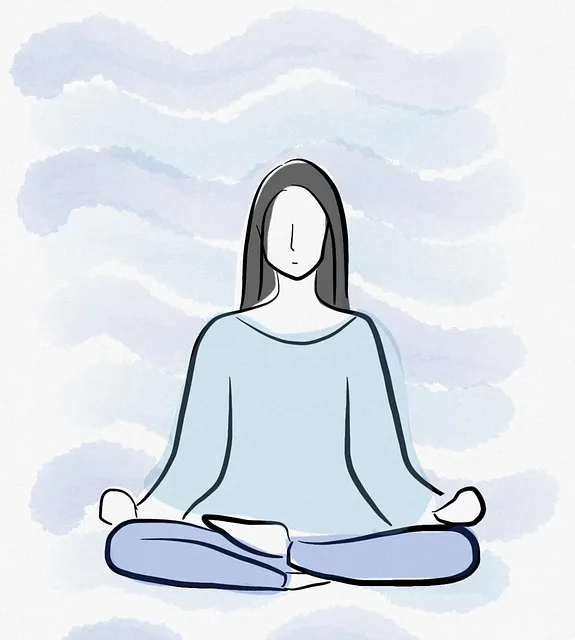Mindfulness meditation, popularized by Kaiser Permanente mental health services in Lone Tree, is a scientifically proven technique to enhance mental well-being. By cultivating present-moment awareness and non-judgmental observation of thoughts and emotions, individuals can reduce stress, anxiety, and depression, fostering inner strength and resilience. Starting with simple breathing techniques and gradually integrating mindfulness into daily routines, as guided by Kaiser Permanente professionals, offers profound benefits for both practitioners and mental health providers alike.
Unwind your mind and embrace a healthier you through mindfulness meditation. This practice, championed by Kaiser Permanente’s mental health services, offers profound benefits for daily life. In this comprehensive guide, we’ll take you on a journey from understanding the fundamentals of mindfulness to mastering techniques that suit your lifestyle, even in Lone Tree. Learn how to navigate common challenges and integrate mindfulness into your routine for lasting success.
- Understanding Mindfulness Meditation: A Foundation for Mental Well-being
- The Benefits of Practicing Mindfulness in Everyday Life (as highlighted by Kaiser Permanente mental health services)
- Getting Started with Meditation: Tips and Techniques for Beginners at Lone Tree
- Overcoming Challenges: How to Stay Consistent with Your Practice
- Incorporating Mindfulness into Daily Routines: Simple Strategies for Long-term Success
Understanding Mindfulness Meditation: A Foundation for Mental Well-being

Mindfulness meditation is a practice that cultivates present-moment awareness and non-judgmental observation of thoughts, emotions, and bodily sensations. It’s more than just calming the mind; it’s about developing a deeper understanding and connection with yourself. This ancient technique has gained significant traction in modern times, thanks to organizations like Kaiser Permanente Lone Tree, which emphasize mental health as a core component of overall well-being. By incorporating mindfulness into your daily routine, you can enhance your Self-Care Routine Development for Better Mental Health.
The practice serves as a powerful tool to combat stress, anxiety, and even depression. It encourages individuals to observe their thoughts without getting caught up in them, fostering better communication strategies within oneself. This introspective process also plays a crucial role in Mental Illness Stigma Reduction Efforts by promoting understanding and acceptance of various mental health conditions. Through regular mindfulness meditation, one can cultivate a more positive relationship with their thoughts and emotions, ultimately leading to improved mental resilience.
The Benefits of Practicing Mindfulness in Everyday Life (as highlighted by Kaiser Permanente mental health services)

Practicing mindfulness meditation has been shown to have numerous benefits for mental well-being, as highlighted by Kaiser Permanente mental health services in their Lone Tree location. Regular mindfulness practice can help reduce stress and anxiety, two common issues that often lead to more serious mental health problems if left unaddressed. By cultivating present-moment awareness, individuals can learn to observe their thoughts and emotions without judgment, fostering a greater sense of inner strength and resilience.
Incorporating mindfulness meditation into daily routines promotes better focus, concentration, and emotional regulation. Kaiser Permanente’s approach emphasizes that this practice isn’t just about quieting the mind but also about cultivating kindness and compassion towards oneself and others. Through regular Mindfulness Meditation, mental health professionals can enhance their own inner strength development, improving their ability to navigate challenging situations with clarity and composure. This, in turn, enables them to better support their clients during risk assessment processes.
Getting Started with Meditation: Tips and Techniques for Beginners at Lone Tree

Starting your mindfulness meditation journey at Lone Tree can be a transformative experience, especially with guidance from Kaiser Permanente mental health professionals. Begin by carving out a quiet space, free from distractions, where you can sit comfortably and focus on your breath. Set a timer for 5-10 minutes initially; consistency is key to reaping the benefits of meditation.
For beginners, simple breathing techniques are an excellent starting point. Pay attention to the sensation of air flowing in and out as you inhale and exhale deeply. This practice helps calm the mind and body, reducing stress levels. Incorporate positive thinking affirmations during this process—a communication strategy that boosts confidence—to reinforce a sense of peace and well-being.
Overcoming Challenges: How to Stay Consistent with Your Practice

Maintaining a consistent mindfulness meditation practice can be challenging, especially when dealing with life’s ups and downs. At Kaiser Permanente mental health Lone Tree, we understand that overcoming obstacles is a significant step towards reaping the benefits of mindfulness. One way to stay committed is by setting realistic goals. Begin with small, manageable daily practices, gradually increasing duration or complexity as you grow more comfortable.
Additionally, incorporating mindfulness into your routine can help. For instance, consider mindful breathing exercises during stressful moments, or practice body scans while relaxing at home. If you encounter setbacks, view them as learning opportunities. Reflect on what’s interfering with your practice—is it time constraints, distractions, or something deeper? This self-awareness is crucial for identifying effective burnout prevention strategies for healthcare providers, such as adjusting your schedule or seeking support when needed.
Incorporating Mindfulness into Daily Routines: Simple Strategies for Long-term Success

Incorporating mindfulness into daily routines is a powerful way to enhance mental well-being, as advocated by Kaiser Permanente mental health professionals in Lone Tree. Simple strategies can make this practice sustainable over time. Start with small, manageable steps like dedicating just 5 minutes each morning or evening for mindful breathing exercises. This can be done while sitting comfortably, focusing on the sensation of air filling your lungs and leaving your body. Over time, expand your mindfulness practice by incorporating activities like mindful walking, where you pay attention to each step and the surrounding environment.
For long-term success, integrate mindfulness into everyday tasks. For example, when eating, take a moment to appreciate the flavors, textures, and smells of your food. During commutes, practice being present by noticing the sights and sounds around you without judgment. Engaging in these simple strategies not only promotes positive thinking but also supports emotional healing processes. Additionally, consider seeking out Healthcare Provider Cultural Competency Training resources for tailored guidance on incorporating mindfulness into your unique lifestyle and cultural context.
Mindfulness meditation, backed by the positive impacts observed in Kaiser Permanente mental health services, is a powerful tool for enhancing everyday life. As demonstrated at Lone Tree, getting started with simple techniques and overcoming challenges can lead to lasting success. By incorporating mindfulness into daily routines, individuals can experience improved mental well-being and cultivate a deeper connection with their thoughts and emotions. Embrace these strategies to embark on your own transformative journey towards inner peace and clarity.






